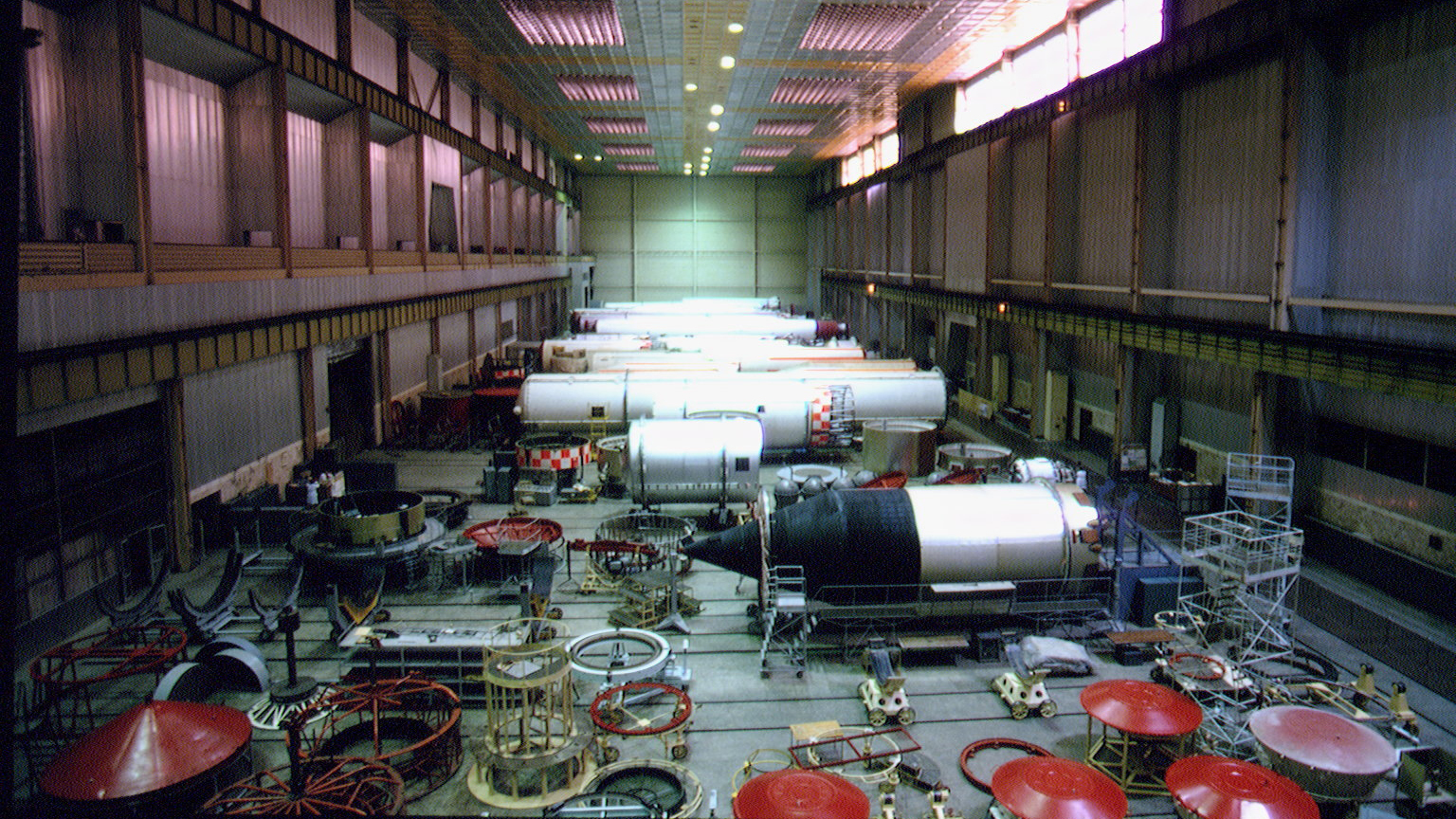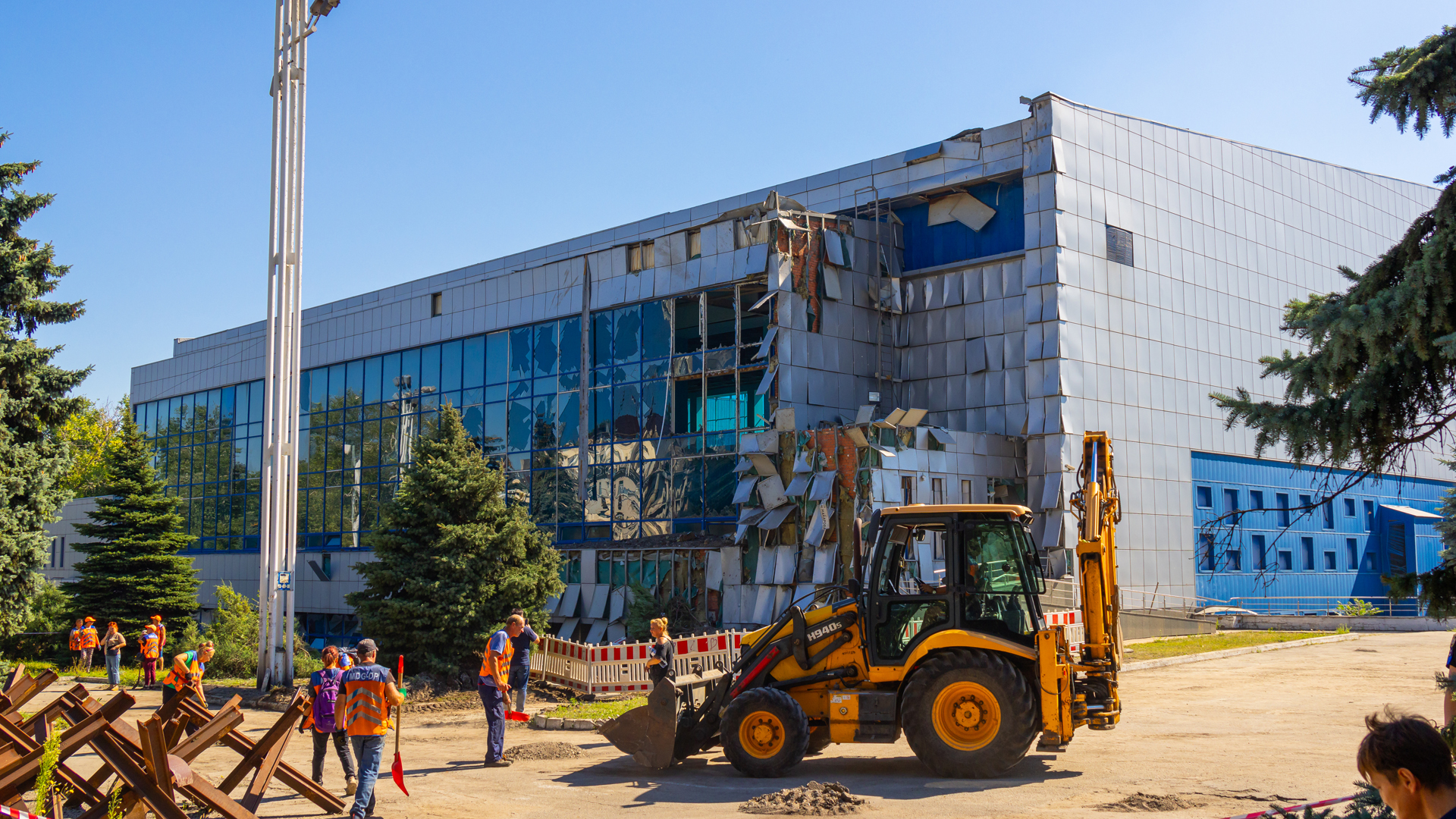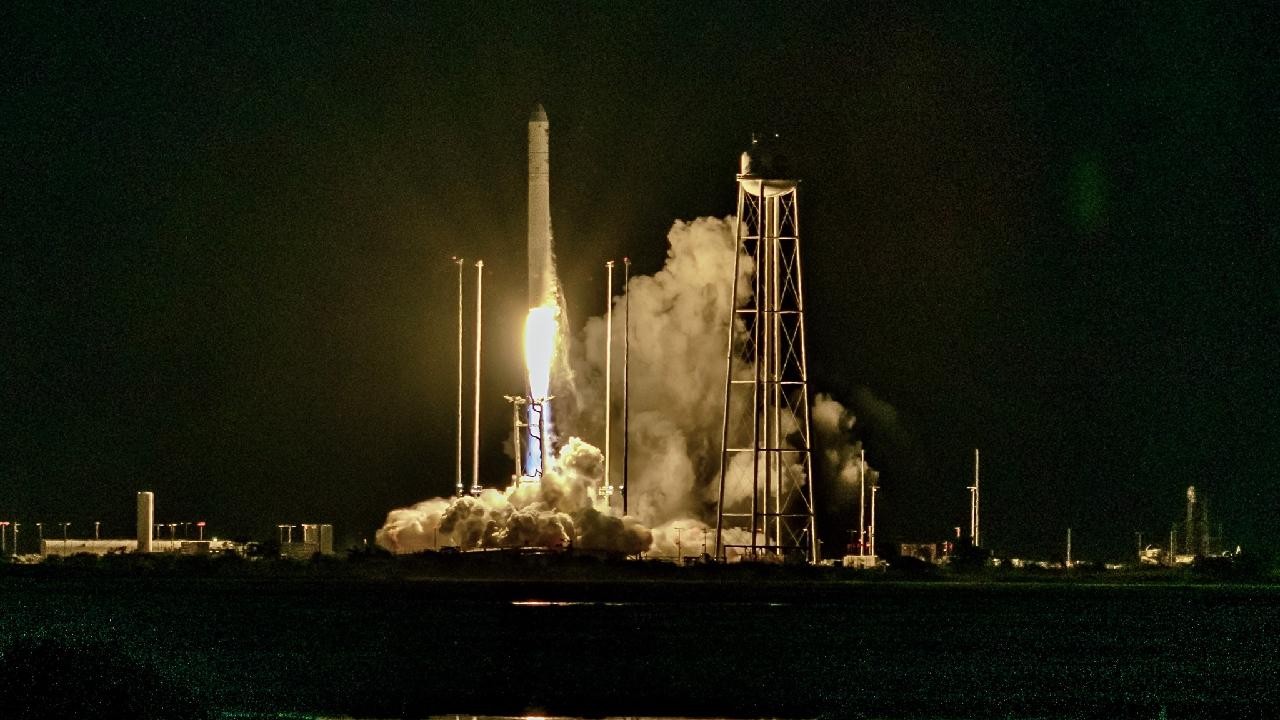
On Aug.1, Northrop Grumman's sleek Antares rocket rose from the rural wetlands of eastern Virginia, propelling into orbit a cargo spacecraft headed to the International Space Station. The launch was smooth, faultless. The rocket's first stage, assembled in the central Ukrainian city of Dnipro, separated about three and a half minutes after liftoff and fell into the choppy waters of the Atlantic Ocean as planned.
The launch success was likely bittersweet for the Ukrainian engineers who built that stage . That's because the flight was the last for this type of Antares, the 230 series, which contained Ukraine-made components, as well as engines made in Russia.
Volodymyr Usov, a Ukraine-born space entrepreneur and former chairman of the country's space agency, has no doubt that the collaboration with Northrop Grumman — so precious to the Ukrainians, as it opened the door for them to the West — fell victim to the war waged against them by Russia.
The end of the Antares project is just one of the many blows Ukraine's mighty space industry has sustained since Russian tanks first rolled into Ukraine on Feb. 24, 2022.
The enormous Yuzhnoye State Design Office and Yuzhmash Machine Building rocket factory in Dnipro, where the Antares first stages were assembled, have been repeatedly targeted by Russian missiles. The exact scale of damage these facilities have sustained is not known, but Usov said the plants, giant state-run establishments from the time when Ukraine was a part of the Soviet Union, have now mostly switched to building military technology.
"Dnipro is under attack almost every week, and [the Russians] target critical infrastructure," Usov told Space.com. "There were several airstrikes on the [Yuzhnoye and Yuzhmash] enterprises. There was some damage, but the factories are now working pretty intensively, mostly on military and defense programs."
Before the war, the Yuzhmash and Yuzhnoye factories used to build about 100 launch vehicles per year, including Ukraine's own medium-lift Zenit rocket that in the past had launched commercial payloads from the Russia-run Baikonur Cosmodrome in Kazakhstan as well as from waterborne platforms operated by the now-defunct international company Sea Launch Alliance.
Yuzhmash and Yuzhnoye also make upper stages for the European lightweight Vega rocket and its Vega C version. But Usov says that, just like Antares, that cooperation, too, is nearing its end. The loss of these contracts will hurt Ukraine, which has been seeking to create a space sector independent of its former hegemon-turned-archenemy, Russia. The Italian firm Avio, the manufacturer of the Vega rocket, has not yet confirmed whether or not it will discontinue using the Ukrainian upper-stage technology, but hinted in the wake of Russia's invasion that it may be looking for a Europe-made replacement. Usov doesn't welcome the move, although he understands that Ukraine has become a high-risk business partner, through no fault of its own.
"Ukraine receives a lot of [military] support, but if you look at our collaborations in space, it's mostly all gone now," Usov said. "It's understandable. Our partners know that, because of the war, there is risk to the technology, and therefore to their schedules and their clients. Nobody wants to take that risk."

Some startups, including Usov's own Kurs Orbital and the U.K.-headquartered rocket firm Skyrora, still keep their research and development facilities in Ukraine running, although their main operations are based in Europe. The larger projects, however, have mostly ended. U.S. rocket company Firefly, which only six years ago opened a major research and development center in Dnipro, has withdrawn from the country, said Usov. With these partnerships gone, Ukraine's army of engineers and space experts is not only out of work, but also, once again, isolated from the world, a bitter reminder of the decades spent behind the Iron Curtain.
"Frankly, speaking, I see more damage [to the Ukrainian space industry] from those collaborations which are not here anymore than from direct airstrikes from the Russian army," said Usov. "There are some startups, of course, involving small teams of young engineers that's not enough to substitute the big programs where thousands of space professionals were involved."
Usov used to have bold ambitions for Ukraine's space sector. During his 2020 tenure as chairman of the State Space Agency of Ukraine, he worked to lay a foundation for a more open and commercially driven industry that would replace the tightly state-controlled ways of doing things inherited from the Soviet era. Ukraine's heritage in aerospace is without a doubt world-class. In fact, Sergey Korolev, the mastermind behind the Soviet Union's 1960s successes in the space race, was born and raised in Ukraine. Before the Russian invasion, the state-owned corporations run by the Ukrainian space agency employed 16,000 people, nearly as many as NASA does.

But despite Ukraine's proven track record in space technology development, the door to the West hasn't been particularly open for the former Soviet republic. Unlike its western neighbors Hungary, Slovakia and Poland, which before 1989 were part of the Eastern Bloc but not the Soviet Union, Ukraine is nowhere near joining either the European Union or the European Space Agency (ESA). (It wasn't close to joining even before the Russian invasion, to be clear.)
To keep Ukraine's door to the West at least ajar, Usov and many other space entrepreneurs have set up Europe-based offices for their companies, through which they can reach ESA's funding and support and continue building those precious international relationships.
Usov's Kurs Orbital, which is developing a rendezvous and docking system for future in-orbit refueling and space debris removal missions, has set up a base in Torino, Italy, where it now develops its technology with support from the local ESA Business and Incubation Center.
"We still have our R&D team in Ukraine, in Kyiv, and we have our team here in Torino, in Italy," Usov explained. "The company is Italian and Ukrainian, with engineers and space professionals on both sides."

When the war first started, Usov hoped for a fast victory and didn't intend to leave his hometown of Odessa, a historical seaside resort once known for beautiful beaches and a central core protected by the United Nations Educational, Scientific and Cultural Organization (UNESCO). But as months dragged on and Russian missiles kept raining on the city, destroying homes and turning the historic town center into rubble, he began working on relocating to Italy.
"You go outside your house and you see a rocket flying on top of your house," Usov said, describing everyday life near the war zone. "The only thing you're thinking in that moment is, 'Please don't fall on my house.' That's a terrible thing to think. But that's the reality. And then it hits another building. And at first, you feel relief and then you start feeling the pain for those people who are suffering from that. And that's happening every day."
For adult men younger than 60, getting out of the war-torn country is not exactly easy. But there are exceptions that the skilled and educated can use to escape and establish a new life in the West. Although Usov is aware of the abyss that opens between those who leave and those who stay, the entrepreneur doesn't see himself as having abandoned Ukraine. The country's post-war recovery and its future direction will, to a great degree, depend on its ability to close the gap created by the years of being cut off from the world, he thinks. And that might be a difficult task.
"Right now, if you want to cross the border, you need to do all the paperwork and need to be supported by some programs you are participating in," Usov said. "But this inability to leave the country — that will be another limitation that can hit businesses in the long term. You can't go to meet your potential clients, you can't participate in international conferences, and it will remain so for years."
In the first weeks after the invasion, Ukraine stunned the world with its resilience and gritty defense. Contrary to expectations, the considerably larger Russia failed to take over Kyiv in mere days, as Russian leadership had predicted. But the initial optimism of Usov and most of his compatriots is mostly gone now. The end of the war is not in sight, and equally distant are the dreams of a Ukraine integrated into the western community along with its space sector. How open the door will be when the conflict ends will determine the future of that once-mighty space sector that is now teetering on the brink.
"If Europe and the U.S. are ready to support us, it's not about giving only grants and money," said Usov. "It's about integrating Ukraine into their supply chains, trusting Ukraine, because Ukraine can deliver, and that will be much more helpful in the long-term perspective."







